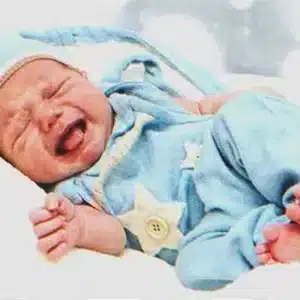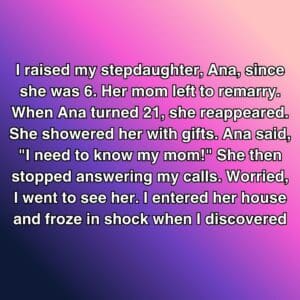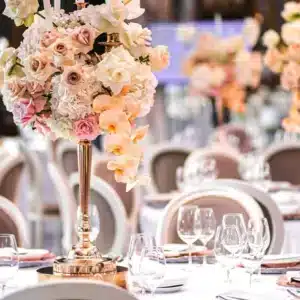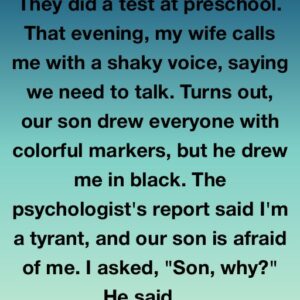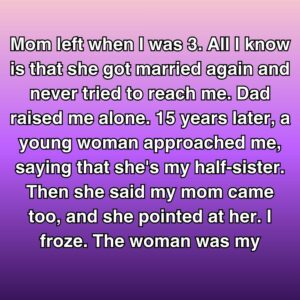I helped my son and daughter-in-law buy their dream home. I gave them part of my retirement fund, no hesitation, no strings attached. I never said no when they asked me to babysit, to clean up their place, to step in whenever life got heavy. For eight years, I poured myself into making their lives easier.
So when my son told me they were inviting the whole family on a weekend getaway, I was thrilled. But then my daughter-in-law turned to me and said, “You’re not coming because it’s finally time for just our generation to have a break from… well, your energy.”
I blinked. My energy?
I smiled and nodded, pretending it didn’t hurt. I even laughed, like it was nothing. But inside, the words sank deep. I thought maybe she meant I fussed too much, or maybe she thought I’d slow them down. Still, it stung. Because I had been there through everything. I had practically raised their little girl, Nora. I changed diapers, stayed up with her through fevers, and walked her for hours when her mother was exhausted. I gave, and gave, and gave—because I loved them. Because that’s what family meant to me.
When the weekend came, I stood at my kitchen window and watched them pack the car. Nora waved at me, her sunglasses too big for her face, clutching a plastic shovel like it was treasure. I waved back, smiling through tears that burned behind my eyes.
I told myself I’d rest. Read. Maybe go to the flea market. But by Saturday morning the house was too quiet. I cleaned things that didn’t need cleaning. I baked a cake I didn’t need and ate two slices before noon. Finally, I drove to the park, the one Nora loved. Kids ran, dogs barked, life buzzed around me. I sat on a bench and just watched.
A boy was helping his little sister climb a slide. Their mother, about my daughter-in-law’s age, sat nearby on a blanket, looking tired. When she came over to sit beside me, we talked a little. She sighed and said, “It’s hard being alone all the time. My mom lives across the country. I wish she were here to help.”
Something about that pierced me. She didn’t know me, but her words reminded me why I had given so much. I told her I’d helped raise my granddaughter once. She asked if I missed it. I nodded and said softly, “Sometimes. But I think I need to learn how to be on my own again.”
Before she left, she smiled and said, “You’re kind. You remind me of my mom. I hope she becomes more like you when she gets older.” That little compliment carried me through the rest of the day.
The next morning I did go to the flea market. I wandered slowly, soaking in the colors, the noise. At one stall, I spotted a wooden toy set like the one I’d had as a child. As I reached for it, someone bumped into me. A man with silver hair and a gentle smile apologized. His name was Eli. We ended up talking about old toys, about life. He’d lost his wife five years ago. I told him about my granddaughter. He invited me to a community group—book swaps, coffee mornings, garden walks. I almost said no. But something inside me whispered, why not? I gave him my number.
That evening, my son texted: “Back home. Hope your weekend was good. Nora wants to see you tomorrow.” Just that. No apology, no explanation. I didn’t press.
The next day I went over, hugged Nora tight until she laughed that I was squishing her. I stayed an hour. My daughter-in-law smiled and said, “It was refreshing not having to think about anyone else.” I nodded and told her I was glad they had fun. And I meant it. But something in me had shifted.
I wasn’t going to beg to be included anymore.
In the weeks that followed, I joined Eli’s group. I met people who were still laughing, still learning, still curious about life. I picked up gardening again. I started painting with watercolors. I even joined a storytelling class.
One afternoon, as I was setting up my paints, the phone rang. My son. “Mom, could you come watch Nora? DIL isn’t feeling well.” For the first time, I paused. “I’d love to,” I said gently, “but I have a group session this afternoon. Tomorrow morning works.” Silence, then, “Sure. That’s fine.” It was the first time I had said no. And it felt good.
A few months later, something unexpected happened. My son invited me to dinner—just me. We sat on their patio, and he said, “I think we took you for granted. That weekend… we were trying to relive what it was like before kids. But it felt wrong. Nora kept asking about you. And I missed you too.” He cleared his throat. “You did everything for us, and we forgot you’re not just Mom or Grandma. You’re a person. I’m sorry.”
I wanted to cry, but instead I smiled softly. “I’m okay. I’m finally learning how to live for me again.”
Life shifted after that. My daughter-in-law began inviting me over just to chat, not to clean or babysit. My son would drop by with coffee. Nora and I started a little garden in my backyard—she calls it “our magic forest.” And Eli? He became a constant. We walk together, cook together, laugh like teenagers. I didn’t expect companionship at this age, but life surprises you when you least expect it.
Looking back, being excluded from that weekend trip was the best thing that could have happened. It hurt, yes. But it woke me up. I had built my world around everyone else, and I’d forgotten that I mattered too.
Sometimes life nudges us gently. Other times, it shoves us hard. That weekend was life telling me: it’s your turn now.
So if you’re someone who always gives, who never says no, who is always the reliable one—remember this: you deserve joy, rest, and a life that belongs to you.
Kindness isn’t weakness. Boundaries are love. And sometimes, being left out is exactly how you find yourself again.
